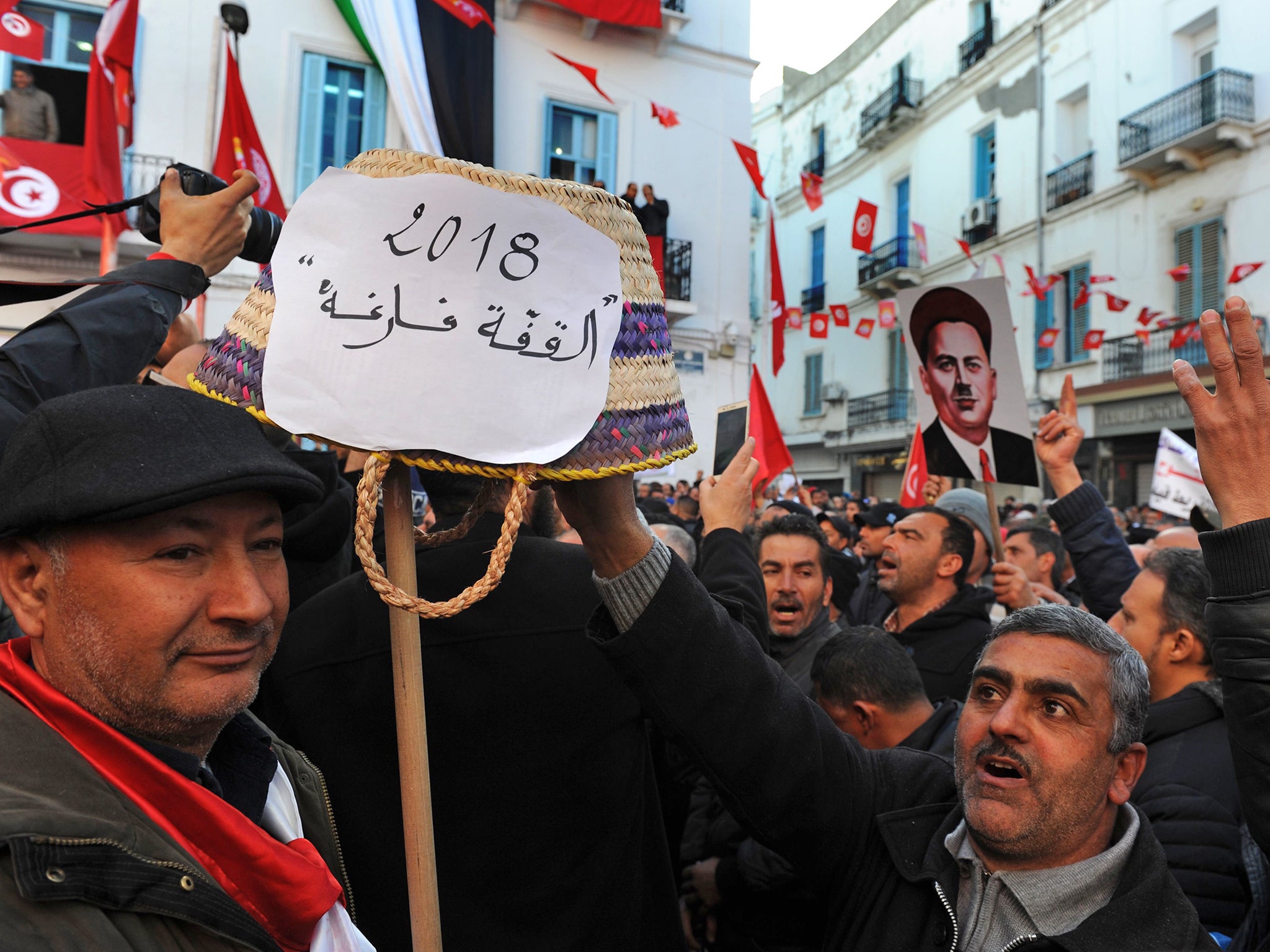Tunisia: Arab Spring's lone success prepares for municipal elections
The cradle of the revolutions that swept the Arab world in 2011 creates a new generation of politicians in north Africa's first ever local elections

Your support helps us to tell the story
From reproductive rights to climate change to Big Tech, The Independent is on the ground when the story is developing. Whether it's investigating the financials of Elon Musk's pro-Trump PAC or producing our latest documentary, 'The A Word', which shines a light on the American women fighting for reproductive rights, we know how important it is to parse out the facts from the messaging.
At such a critical moment in US history, we need reporters on the ground. Your donation allows us to keep sending journalists to speak to both sides of the story.
The Independent is trusted by Americans across the entire political spectrum. And unlike many other quality news outlets, we choose not to lock Americans out of our reporting and analysis with paywalls. We believe quality journalism should be available to everyone, paid for by those who can afford it.
Your support makes all the difference.In 2011, 26-year-old Tunisian Mohamed Bouazizi died after dousing his clothes in petrol and setting himself on fire in front of a local government office.
His actions provided the catalyst for Arab Spring revolutions across North Africa and the Middle East. In the last seven years, many have since been snuffed out or have descended into full-blown conflicts – but Tunisia, where Arab hopes for a brighter future began, remains a light in the darkness.
In elections which are the first of their kind in North Africa, the country is gearing up for its first ever municipal elections on Sunday 6 May. The polls will give remote corners of the country representation for the first time, and include diversity quotas for female, young and disabled candidates.
“[This is] an historic moment; a triumph for Tunisian democracy and for all supporters of democracy around the world,” Rached Ghannouchi, president and co-founder of Ennahdha, the Tunisian Muslim Democrat party, told The Independent.
“Taking power out of Tunis and giving it to locally accountable representatives is a moment for history, a seismic shift against the tradition of centralised power in North Africa.”
Until he fled to Saudi Arabia after the country's Arab Spring Jasmine Revolution, Zine El Abidine Ben Ali ruled Tunisia for 24 years, consistently returned to power in sham elections in which he won more than 90 per cent of the vote.
Repressive 20th century Middle Eastern power structures were almost exclusively built on a culture of ‘strong men’ rulers with highly individualised platforms. Since change swept across the region in 2011, pro-democracy campaigners have been working hard to change the status quo, emphasising the importance of ground up movements.
Mr Ghannouci’s Ennahdha party has been at the forefront of initiatives designed to safely guide Tunisia – where the lagging economy and government corruption are still the frequent target of street protests – into a future where all citizens enjoy their full democratic rights.
The new 2014 Constitution has promised Tunisians fully devolved government for rural areas, long marginalised by Tunisia’s rich coastal cities, which have not yet seen any benefits of the 2011 revolution.
“This will completely change the development model in Tunisia,” said Riadh Mouakher, the minister for local communities.
An entire new generation of politicians will be created on 7 May.
There are around 7,000 seats to fill in 350 newly created municipalities – and for Ennahdha’s lists at least, 43 per cent of those candidates are under the age of 35.
Ennahdha and Nidaa Tounes, the two main parties of the national Unity Government, have legally-mandated diversity quotas. Fifty per cent of lists must be headed by women, and all lists must include one candidate under 35 in the top four and a disabled person in the top 10.
A woman, Souad Abderrahim, is running for mayor of Tunis for the first time, and independent candidate Simon Slama – who has made headlines because he is Jewish – is also running on an Ennahdha slate.
Mr Ghannouchi of Ennahdha hopes that the diverse lists will reflect a healthy mix of society at polling stations.
“We hope this is a sign the young turn out en masse to vote on Sunday. They are a generation for which democracy must deliver,” he said.
“We urge every Tunisian citizen, no matter their political leanings, to exercise their right to vote.
"The establishment of representative local governance is essential to truly complete Tunisia’s democratic transition and to form a strong basis for the economy to flourish."
Join our commenting forum
Join thought-provoking conversations, follow other Independent readers and see their replies
Comments